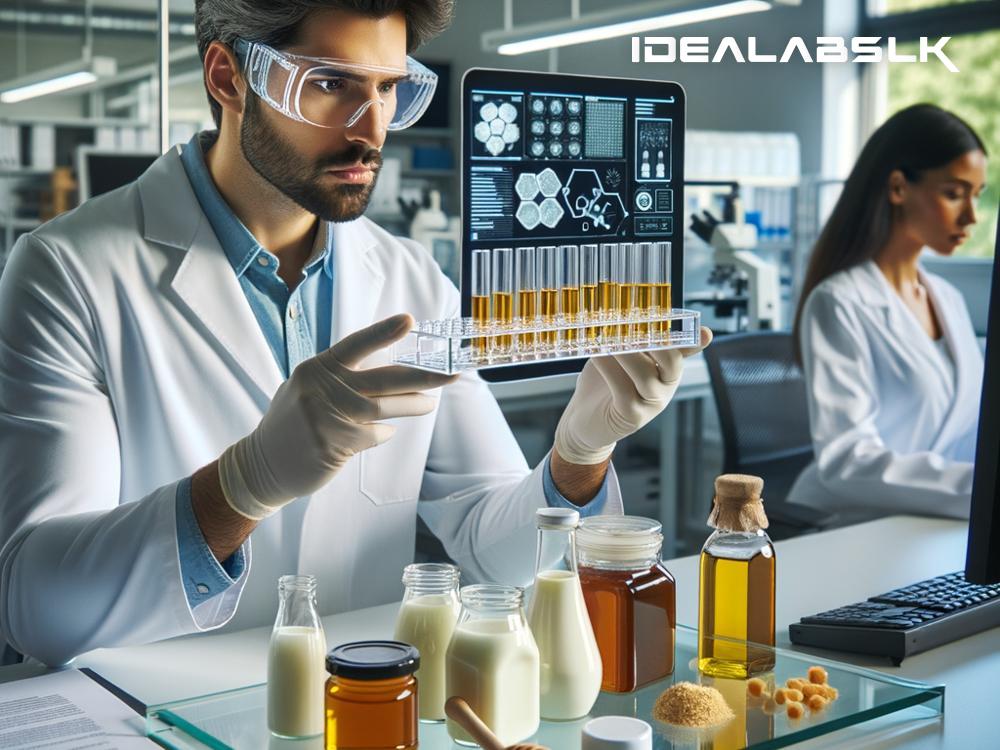Unmasking the Imposters: How AI is Becoming the Superhero in Detecting Food Adulteration
Welcome to the future of food safety, a place where technology isn't just about making our lives easier but ensuring that the very food we eat isn't going to harm us. One might wonder, why does our food need a superhero to save the day? The answer lies in a deceptive practice that has been around for centuries - food adulteration. It's the process where the quality of food is lowered by adding or mixing another substance. It could be adding water to milk, coloring to spices, or something far more harmful like adding chemicals to fruits to make them ripen faster. Not only does it cheat consumers, but it can also lead to serious health risks. Given the complexity and widespread nature of this issue, especially in high-risk foods, detecting adulteration has been like finding a needle in a haystack. Enter Artificial Intelligence (AI), the game-changer in the fight against food fraud.
AI to the Rescue
AI, with its ability to learn and adapt, is transforming how we approach the problem of food adulteration. It's like giving our food safety inspectors a magnifying glass that can see through walls. Here’s how AI is becoming the superhero we didn't know our food needed.
1. The Power of Precise Detection
AI systems can analyze patterns and anomalies in the data collected from food samples at a scale and speed no human can match. Whether it’s recognizing the chemical fingerprint of pure olive oil or identifying the subtle signs that a batch of honey has been diluted, AI can do it accurately and rapidly. This precision means that adulterated food can be caught much more effectively before it hits the shelves.
2. Learning from the Past to Protect the Future
One of the biggest strengths of AI is its ability to learn. Every time it encounters a new form of adulteration, it learns and becomes even better at spotting fraud. This continuous learning process makes AI an invaluable tool in adapting to the ever-evolving tactics of food adulterators.
3. Making Big Data Digestible
The food industry generates mountains of data. From the farm to the fork, every step in the journey of food produces information that could be crucial in detecting adulteration. AI can sift through this vast sea of data to identify risks and patterns that would be impossible for humans to find on their own. This not only includes scientific data but also trends in food supply chains and market dynamics, providing a comprehensive shield against food adulteration.
The Battlefields: High-Risk Foods
Certain foods are more prone to adulteration than others, often because of their value or the complexity of their supply chains. Here are a few examples:
- Spices: High-value spices like saffron can be tempting targets for adulteration. AI can analyze the chemical makeup of spices to detect any foreign substances.
- Milk: As one of the most commonly adulterated foods, detecting water, urea, or detergent mixed into milk requires a keen AI-eye.
- Olive Oil: Known as liquid gold for a reason, many oils are sold as olive oil without being pure. AI can detect even the slightest anomalies in its composition.
- Honey: Often diluted with sugar syrups, honey's authenticity is guarded by AI analyzing its molecular signature.
The Future Plate
The journey of integrating AI into detecting food adulteration is just beginning. With advancements in AI technologies and more robust data collection, the potential to stamp out food adulteration is within reach. This isn't just about ensuring the authenticity of high-risk foods; it's a movement towards a safer, transparent food system where consumers can eat without fear of being duped or harmed.
The Final Word
As we stand on the brink of this new era in food safety, the role of technology, particularly AI, cannot be overstated. It's about harnessing the power of smart, efficient detection to ensure that the food on our plates is as genuine as it gets. The battle against food adulteration is far from over, but with AI as our newest superhero, we're better equipped than ever to fight the good fight. So here's to a future where our only concern with food is how it tastes, not whether it's authentic or safe. The age of AI in protecting our plates is here, and it’s mouthwateringly exciting!

